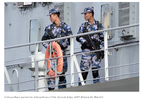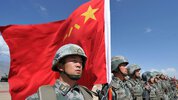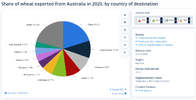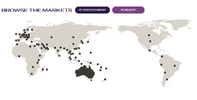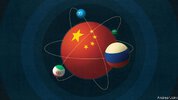Sean K
Moderator
- Joined
- 21 April 2006
- Posts
- 22,183
- Reactions
- 11,370
Perhaps not a direct threat but having a Chinese navy ship make a surprise visit to Sydney was a turning point.
I dare say if the Australian military turned up in China unannounced then they'd see it as a hostile act. Unproven but I expect they would.
That was really weird. Morrison tried to claim we knew about it to smooth things over, but I'm not sure. Maybe we did know, but didn't want to tell Sydney so they didn't come out waving flags.
What was really strange though, was the Chinese sailors standing on the deck - armed. Maybe that was to make sure their own sailors didn't try to jump ship.
